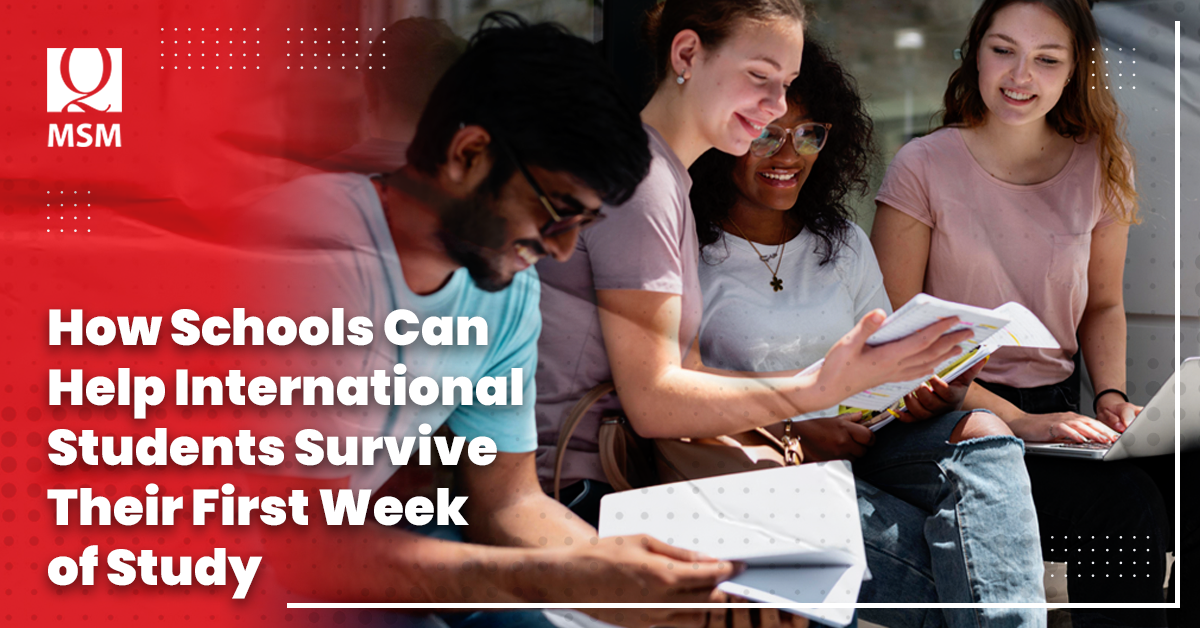For any student, traveling abroad to study represents a big turning point in their lives. Making this choice will require bravery and an openness to the unknown. For international students, leaving the comforts of home to live in a place where language, culture, and customs may differ greatly can be both thrilling and intimidating.
In this regard, educational institutions must offer all-encompassing assistance to newly arrived students to facilitate a seamless transfer and successful assimilation into the academic and social milieu of the receiving nation.
Here are some ways colleges and universities can help first-time international students through their important first week overseas:
Preparation is Key
Encourage students to make careful preparations before leaving their country of origin. Stress the value of developing a thorough budget that accounts for costs like food, books, tuition, and lodging. To assist students in making wise financial decisions, provide them with information and advice on how to estimate living expenses in the country of study.
Caution Against Scams
When students are looking for housing, caution them about the dangers of using websites. Describe cases when gullible international students were duped into falling for scams that left them with no money and no place to live when they arrived. Suggest safer options, like using the housing services offered by the institution or asking for help from local contacts.
Engage in Campus Activities
Encourage social relationships, cultural immersion, and active involvement in extracurricular and school events. Reassure students that being a language learner shouldn’t prevent them from participating because most people on campus are friendly and accepting. Promote participation in cross-cultural groups, field trips, and community events to foster cross-cultural exchanges and reduce feelings of loneliness.
Addressing Homesickness
Acknowledge that international students will inevitably experience homesickness and provide helpful coping mechanisms. Make recommendations, like looking for comforting, familiar things to eat from home or developing practices that bring back memories of home. Encourage them to engage in hobbies or leisure activities as a way to manage emotions and keep emotional stability during homesickness episodes.

Cultural Adjustment
Students should be prepared for potential cultural differences, especially in academic contexts where social norms and communication styles may differ. Inform them of what is expected of them in terms of attending classes, challenging social norms, and interacting with people in the host nation. Highlight the value of accepting cultural variety and keeping an open mind toward unusual practices and behaviors.
Celebrating Milestones
Encourage students to recognize and appreciate their little successes as they make their way through their study abroad experience. Encourage them to acknowledge and value their accomplishments and personal development, no matter how small, to cultivate an environment of self-reflection and thankfulness. Promote the habit of celebrating small victories daily to reaffirm the idea that development is based on small victories.
To sum up, the first week of studying overseas is a crucial time that determines the course of a student’s academic and personal experiences in a foreign country. Education institutions can help first-time international students successfully explore their new academic environment, embrace cultural diversity, and overcome obstacles by offering them all-encompassing support and advice. Institutions can guarantee that students starting this life-changing journey have a smooth transition by taking proactive steps and demonstrating a dedication to their well-being.
Source:
- Du, J. (2022, August 16). How universities can support international students beyond orientation week. The Conversation. Retrieved from https://theconversation.com/how-universities-can-support-international-students-beyond-orientation-week-186678




